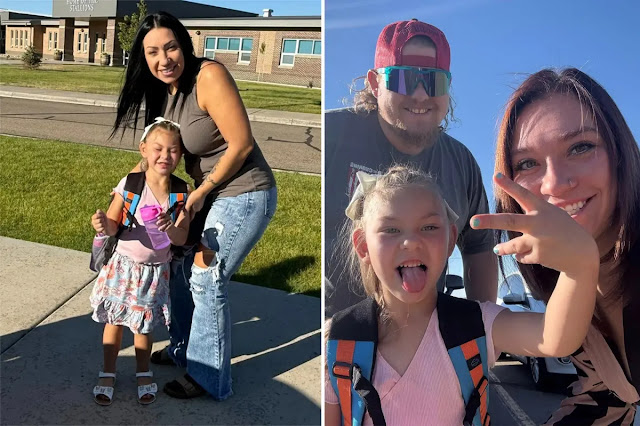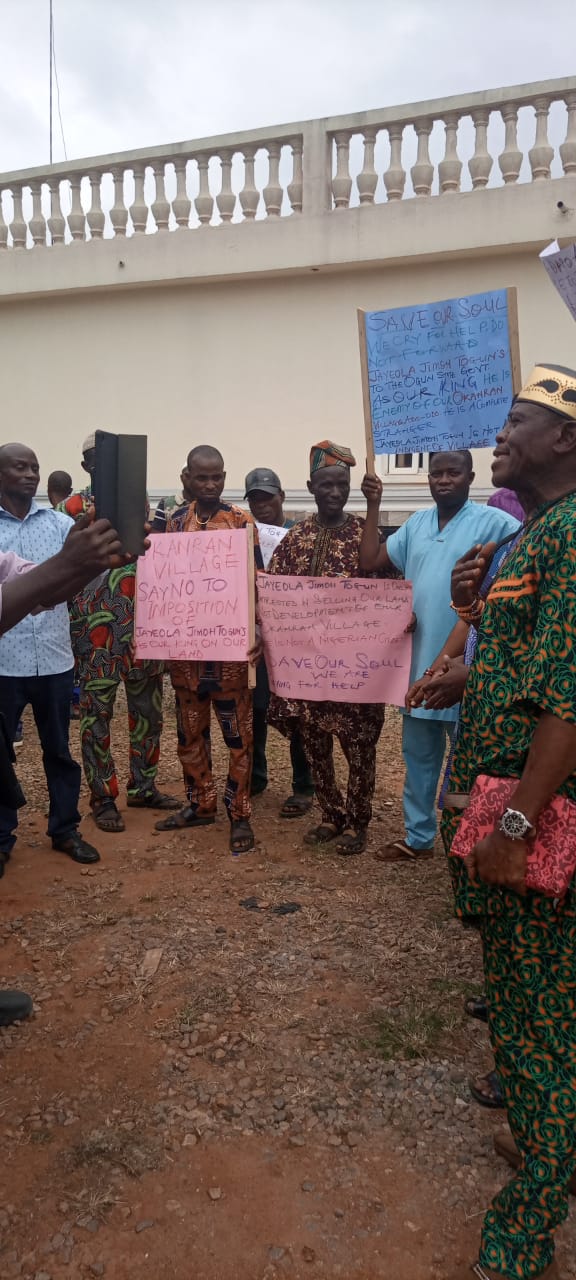In a historic ruling that has sent shockwaves through Utah’s legal and medical communities, a judge has awarded a family nearly $1 billion—the largest payout in the state’s history—following catastrophic medical negligence during a baby’s delivery that left her with permanent, life-altering disabilities. The case, centered on the botched delivery of Azaylee McMicheal at Jordan Valley Medical Center in West Valley City, Utah, on October 14, 2019, has exposed glaring failures in hospital care and sparked a broader conversation about patient safety, medical accountability, and the devastating human toll of negligence.
Judge Patrick Corum, presiding over the case in a Utah district court, delivered a scathing verdict earlier this month, holding Steward Health Care, the operator of Jordan Valley Medical Center at the time, liable for the medical errors that irrevocably altered the life of Azaylee McMicheal and her family. Parents Anyssa Zancanella and Danniel McMicheal were awarded $951 million in damages, a sum that reflects the profound loss and ongoing suffering caused by the hospital’s failures, according to court documents cited by The Salt Lake Tribune. The ruling not only sets a new benchmark for medical malpractice awards in Utah but also underscores the catastrophic consequences of lapses in care during childbirth.
A Devastating Delivery
The events leading to this landmark verdict began on October 14, 2019, when Anyssa Zancanella arrived at Jordan Valley Medical Center to give birth to her daughter, Azaylee. What should have been a joyous moment quickly descended into a nightmare due to a series of egregious medical errors. According to the family’s 2021 lawsuit, the nurses assigned to Zancanella’s care had just completed their training on the day of her admission, a fact that raised immediate concerns about their preparedness to handle a complex delivery. Despite their inexperience, these nurses administered excessive doses of Pitocin, a drug used to induce labor, without closely monitoring critical warning signs such as rising fetal blood pressure and stalled cervical dilation.
Pitocin, when used correctly, can help facilitate labor, but its overuse can lead to dangerous complications, including fetal distress and oxygen deprivation. In Azaylee’s case, the excessive administration of the drug created a cascade of problems that went unaddressed for hours. Court documents revealed that the nurses failed to recognize or act on clear indicators of fetal distress, including abnormal heart rate patterns and signs that the baby was struggling. These oversights were compounded by the inaction of the on-call physician, who was allegedly informed of the emergency but chose to return to sleep in a nearby room rather than intervene promptly.
Judge Corum’s ruling was unequivocal in its condemnation of the hospital’s conduct. “Zancanella would have been better off delivering this baby at the bathroom of a gas station, or in a hut somewhere in Africa, than in this hospital,” he wrote. “Literally, this was the most dangerous place on the planet for her to have given birth.” The judge’s stark words reflect the gravity of the negligence, painting a picture of a medical facility ill-equipped to handle the life-and-death responsibilities entrusted to it.
A Life Forever Changed
The consequences of these failures were catastrophic. After more than 24 hours of labor, Azaylee was delivered via an overdue cesarean section, a procedure that came too late to prevent severe trauma. The prolonged labor and mismanagement led to oxygen deprivation, resulting in significant neurological damage. When Azaylee was finally born, she exhibited distressing physical signs of trauma: a misshapen head, facial swelling, and extensive bruising. She was immediately airlifted to the Intensive Care Unit at Primary Children’s Hospital in Salt Lake City, where medical staff worked to stabilize her condition.
Now five years old, Azaylee lives with the profound consequences of the injuries she sustained at birth. She suffers from frequent seizures, a condition that requires constant monitoring and medical intervention. Largely non-verbal, she struggles to communicate, and her cognitive and physical development have been severely impaired. Azaylee requires round-the-clock care, a burden that has reshaped the lives of her parents and family. She attends kindergarten for only a few hours each day, supported by extensive physical and occupational therapy to help her navigate the challenges of her disabilities.
The emotional toll on the family has been immense. During the three-day trial, Anyssa Zancanella spoke movingly about the loss of the life her daughter might have had. “Azaylee had her life stolen. We all did. We had her taken from us,” she testified. “She is trapped. I know that my daughter is in there, but she can’t come out, and I think of that every day.” Zancanella’s words captured the heart-wrenching reality of watching a child struggle with limitations imposed not by nature but by preventable medical errors. Judge Corum echoed this sentiment in his ruling, stating, “The person [Azaylee] was to be, the person she deserved to be, is trapped inside a brain-damaged child. I cannot think of anything more profound, total, or complete than that loss.”
A Family’s Fight for Justice
The $951 million award is intended to cover a lifetime of medical expenses, caregiving costs, and compensation for the profound pain and suffering endured by Azaylee and her family. The damages include provisions for ongoing medical treatments, specialized therapies, and adaptive equipment to support Azaylee’s daily needs. The family also plans to acquire a service dog trained to detect seizures, a critical tool for managing Azaylee’s condition. Additionally, they travel with oxygen equipment to address medical emergencies, a constant reminder of the fragility of their daughter’s health.
The scale of the award reflects the extraordinary scope of the harm caused. Medical negligence cases often result in significant payouts, but a sum approaching $1 billion is unprecedented in Utah and rare even on a national scale. The figure underscores the lifelong impact of Azaylee’s injuries, which will require extensive resources to manage. Beyond the financial aspect, the ruling serves as a powerful statement about the need for accountability in healthcare, particularly in high-stakes settings like labor and delivery.
However, the family’s ability to collect the full amount is uncertain. Steward Health Care, the defendant in the case, is currently grappling with severe financial difficulties, including bankruptcy proceedings and billions of dollars in debt. This raises significant questions about whether the family will receive the compensation they are owed. The hospital where the incident occurred has since been renamed Holy Cross Hospital–West Valley after being acquired by CommonSpirit Health two years ago, further complicating the financial landscape. While the acquisition does not directly affect the legal liability, it adds layers of complexity to the process of securing the awarded damages.
The Broader Implications
The case has sparked widespread discussion about patient safety and the systemic issues that can lead to catastrophic medical errors. The fact that the nurses involved were newly trained and that the on-call physician failed to act promptly points to potential deficiencies in staffing, training, and oversight at Jordan Valley Medical Center. These issues are not unique to this hospital but reflect broader challenges within the healthcare industry, where understaffing, inadequate training, and communication breakdowns can have devastating consequences.
In Utah, the ruling has prompted calls for stronger regulations and oversight of medical facilities, particularly those handling high-risk procedures like childbirth. Advocates for patient safety argue that hospitals must invest in robust training programs, clear protocols for emergency situations, and systems to ensure accountability at every level of care. The case also highlights the importance of monitoring the use of medications like Pitocin, which, while valuable in certain contexts, can pose significant risks if misused.
On a national level, the case adds to the ongoing debate about medical malpractice reform. Some argue that large awards like this one drive up healthcare costs by increasing insurance premiums for providers, while others contend that such payouts are necessary to hold hospitals accountable and deter negligence. For the McMicheal family, the award is not just about financial compensation but about justice for a preventable tragedy that has forever altered their lives.
The Human Cost of Negligence
At its core, this case is about more than legal precedents or financial awards—it is about a family grappling with an unimaginable loss. Anyssa Zancanella and Danniel McMicheal entered Jordan Valley Medical Center with the expectation that they would leave with a healthy baby and a bright future. Instead, they were thrust into a reality defined by medical appointments, therapy sessions, and the constant fear of their daughter’s next seizure. Azaylee, who might have grown up running, playing, and dreaming without limitation, now faces a life of profound challenges, her potential locked behind the barriers of her injuries.
The family’s story resonates far beyond Utah, touching on universal themes of trust, betrayal, and resilience. Parents place immense trust in medical professionals to safeguard their health and the health of their children, particularly during vulnerable moments like childbirth. When that trust is broken, the consequences ripple through families, communities, and society as a whole. The McMicheals’ fight for justice is a testament to their determination to seek accountability and ensure that their daughter’s story is heard.
Judge Corum’s ruling, with its blistering critique of the hospital’s failures, serves as a warning to healthcare providers everywhere. It underscores the sacred responsibility entrusted to those who care for patients and the devastating consequences of failing to uphold that duty. The $951 million award, while staggering, cannot undo the harm done to Azaylee or restore the life her family envisioned. It can, however, provide the resources needed to give her the best possible care and send a message that negligence of this magnitude will not be tolerated.
A Call for Change
As the McMicheal family moves forward, they face an uncertain future. The financial challenges posed by Steward Health Care’s bankruptcy may limit their ability to collect the awarded damages, but their resolve remains unbroken. They continue to advocate for their daughter, seeking ways to improve her quality of life and raise awareness about the dangers of medical negligence. The planned acquisition of a service dog and the use of oxygen equipment are just two examples of the proactive steps they are taking to support Azaylee’s needs.
The case also serves as a rallying cry for systemic change. Hospitals must prioritize patient safety, ensuring that staff are adequately trained, protocols are followed, and emergencies are met with swift, decisive action. Policymakers, healthcare leaders, and advocacy groups have an opportunity to learn from this tragedy, implementing reforms to prevent similar incidents in the future. Whether through stricter regulations, enhanced training programs, or improved oversight, the goal must be to create a healthcare system where no family has to endure the pain experienced by the McMicheals.
Conclusion
The $951 million award in the McMicheal case is a landmark moment in Utah’s legal history, but it is also a deeply human story of loss, resilience, and the pursuit of justice. Azaylee McMicheal’s life was forever altered by the negligence of those entrusted with her care, and her family’s fight for accountability has shone a light on the critical importance of patient safety. While the financial award may provide some measure of relief, it cannot erase the pain of knowing that Azaylee’s potential was stolen by preventable errors.
As the case reverberates through Utah and beyond, it serves as a stark reminder of the stakes involved in healthcare. For Anyssa Zancanella and Danniel McMicheal, the fight is far from over. They will continue to care for their daughter, advocate for her needs, and seek a future where she can live with dignity and support. Their story is a call to action for all who believe in the power of accountability to drive change, ensuring that no other family has to endure the heartbreak of a preventable tragedy.








